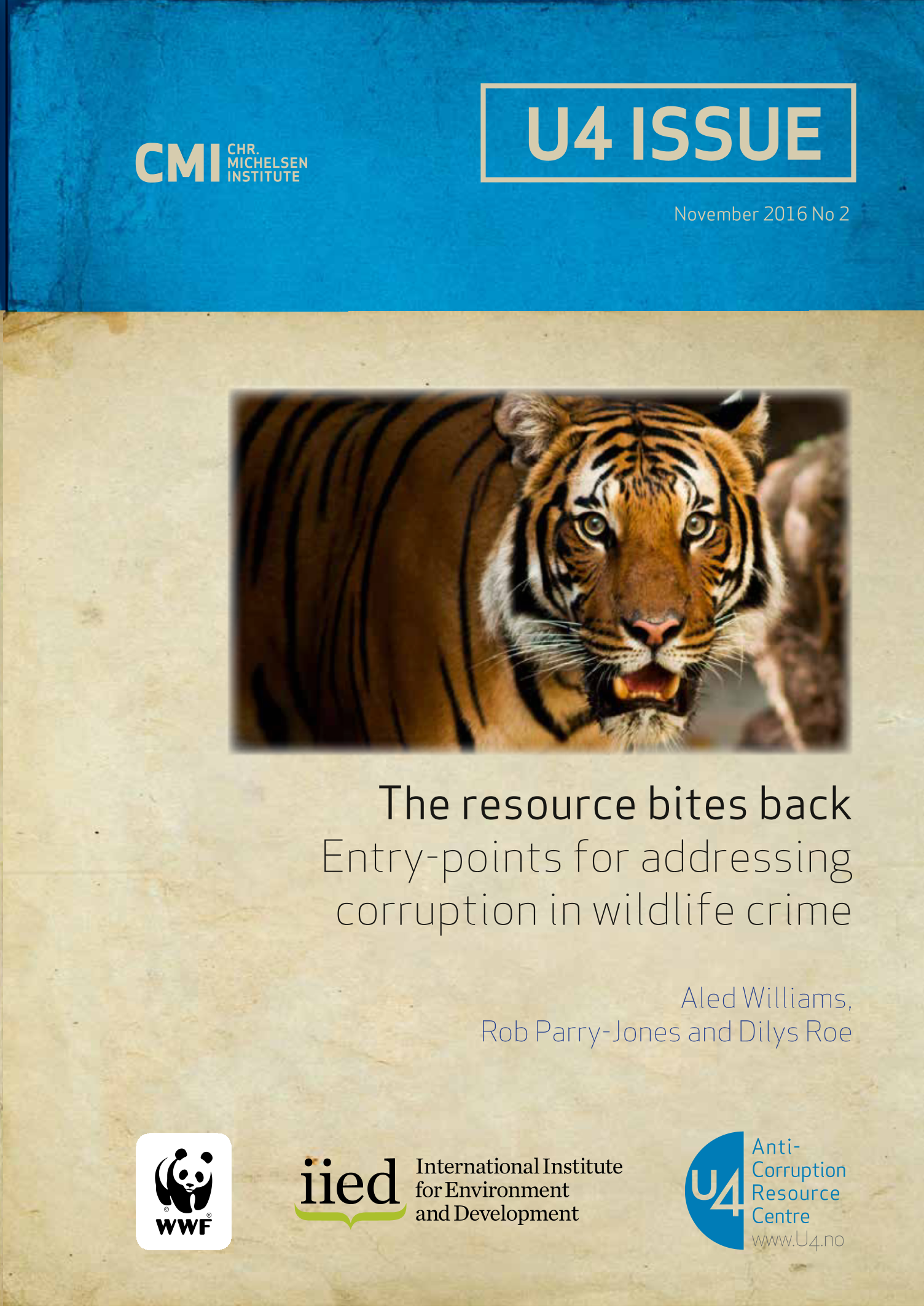U4 Issue
The resource bites back: Entry-points for addressing corruption in wildlife crime
Corruption has recently risen up the global wildlife conservation agenda with a series of international agreements highlighting the role of corruption in facilitating wildlife crime. Though there are notable exceptions, there is still a weak treatment in the literature of the problems of, and solutions to, wildlife crime from an anti-corruption perspective. Identifying and promoting effective interventions that get to the heart of the corruption problems associated with wildlife crime is a shared responsibility across the wildlife conservation, anti-corruption, anti-illicit trade, and anti-organized crime communities.
As well as reviewing existing empirical literature to explore the types and characteristics of corruption associated with wildlife crime, this U4 Issue identifies entry-points for addressing corruption in wildlife crime based on recent anti-corruption effectiveness literature.
Building credible corruption risk assessment and corruption risk management procedures is important for improving wildlife conservation programming. This will enable generation of detailed analyses of corruption risk factors at programmatic level, the recording of baseline data on corruption prevalence, and the production of detailed plans on how best to mitigate and manage identified corruption risks.
For a shorter summary, see Hard-won wisdom: what conservationists need to know about wildlife-related corruption IIED Briefing by Williams, A., Parry-Jones, R. and Roe, D. (December 2016)

Cite this publication
Roe, D.; Parry-Jones, R.; Williams, A. (2016) The resource bites back: Entry-points for addressing corruption in wildlife crime. Bergen: Chr. Michelsen Institute (U4 Issue 2016:2) 25p
Disclaimer
All views in this text are the author(s)’, and may differ from the U4 partner agencies’ policies.
This work is licenced under a Creative Commons Attribution-NonCommercial-NoDerivatives 4.0 International licence (CC BY-NC-ND 4.0)

